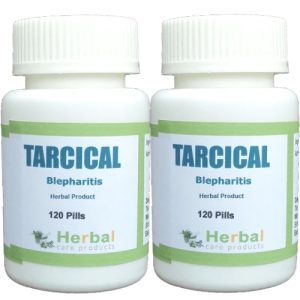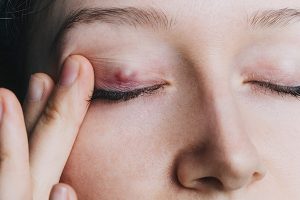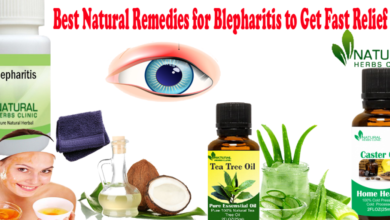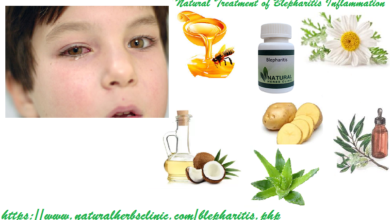Natural Cure for Blepharitis: 10 Proven Remedies You Need to Try Today

Blepharitis is a common yet frustrating condition that causes inflammation of the eyelids. It can lead to redness, irritation, burning sensations, and even blurred vision. While conventional treatments like antibiotics and medicated eye drops can be effective, many people prefer natural remedies to manage symptoms and improve their eye health holistically. If you’re searching for a natural cure for blepharitis, you’ve come to the right place! Here are ten proven remedies to help alleviate your discomfort and promote long-term eye health.
What is Blepharitis?
Blepharitis is a common eye condition characterized by inflammation of the eyelids, typically affecting the area where the eyelashes grow. It can cause discomfort, redness, and irritation, often leading to persistent symptoms if left untreated. Though not contagious, blepharitis can be chronic and requires proper management to prevent complications.
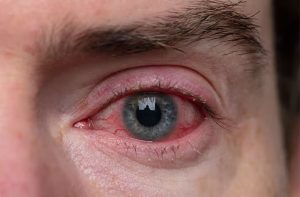
Causes of Blepharitis
Blepharitis can be caused by various factors, including:
- Bacterial Infections – The overgrowth of bacteria on the eyelids can lead to inflammation.
- Meibomian Gland Dysfunction (MGD) – Blockage or malfunctioning of oil glands in the eyelids can contribute to symptoms.
- Seborrheic Dermatitis – A skin condition that causes flaky skin can also affect the eyelids.
- Allergies – Reactions to eye makeup, contact lenses, or environmental allergens may trigger symptoms.
- Demodex Mites – Tiny mites that live on the skin can contribute to blepharitis in some individuals.
Symptoms of Blepharitis
Common symptoms of blepharitis include:
- Red, swollen, or itchy eyelids
- A burning or stinging sensation in the eyes
- Crusty or flaky debris at the base of the eyelashes
- Excessive tearing or dry eyes
- Sensitivity to light (photophobia)
- Blurred vision that improves with blinking
Types of Blepharitis
There are two main types of blepharitis:
- Anterior Blepharitis – Affects the outer edge of the eyelid where the eyelashes grow. It is often associated with bacteria or skin conditions like dandruff.
- Posterior Blepharitis – Affects the inner part of the eyelid due to issues with the meibomian glands, leading to problems with tear production and eye lubrication.
10 Proven Remedies for Blepharitis
Blepharitis is a common condition that causes inflammation of the eyelids, leading to irritation, redness, and crusting. While it can be persistent, these 10 proven remedies can help manage symptoms and provide relief:
1. Warm Compresses
Applying a warm compress to your eyes can help soften and loosen the debris and oil buildup that contribute to blepharitis. To do this:
- Soak a clean washcloth in warm water.
- Wring out excess water and place the cloth over your closed eyelids.
- Leave it on for 5–10 minutes, re-wetting as needed.
- Gently massage your eyelids to remove blockages.
This simple routine, when done twice daily, can significantly reduce inflammation and discomfort.
2. Tea Tree Oil Cleansing
Tea tree oil is known for its antimicrobial and anti-inflammatory properties, making it an excellent choice for managing blepharitis caused by bacteria or mites (Demodex). Here’s how you can use it safely:
- Mix a few drops of tea tree oil with a carrier oil (such as coconut or olive oil).
- Dip a clean cotton swab into the solution and gently wipe your eyelid margins.
- Rinse your eyes thoroughly with warm water.
Perform this once daily to help keep your eyelids clean and free from infection.
3. Coconut Oil
Coconut oil has natural antibacterial and anti-inflammatory properties that can soothe blepharitis symptoms. Simply:
- Dip a cotton swab into virgin coconut oil.
- Apply a thin layer to your eyelids.
- Leave it on for 15–20 minutes before rinsing off.
This remedy helps to moisturize and protect your eyelids from further irritation.
4. Aloe Vera Gel
Aloe vera is well known for its soothing and healing properties. It can help reduce redness, itching, and swelling associated with blepharitis.
- Apply fresh aloe vera gel to your eyelids.
- Leave it on for 10–15 minutes.
- Rinse off with lukewarm water.
Repeat this process twice a day for best results.
5. Omega-3 Fatty Acids
One of the best long-term solutions for blepharitis is improving your diet, particularly by adding more omega-3 fatty acids. These healthy fats help reduce inflammation and promote overall eye health. Good sources include:
- Fatty fish (salmon, mackerel, sardines)
- Flaxseeds and chia seeds
- Walnuts
- Fish oil or Blepharitis Eye Health Supplement for Pain Relief containing omega-3s
Consuming these foods regularly can help prevent recurrence and improve tear quality.
6. Honey Eyewash
Raw honey has natural antibacterial properties and can be used as an eyewash to combat blepharitis-causing bacteria.
- Mix one teaspoon of raw honey with a cup of warm water.
- Stir well and let it cool to room temperature.
- Use a clean dropper to apply a few drops to your eyelids.
- Rinse with lukewarm water after a few minutes.
This remedy can be used once daily to help with symptom relief.
7. Castor Oil Treatment
Castor oil is a natural anti-inflammatory and lubricant, helping to reduce dryness and irritation caused by blepharitis.
- Apply a small amount of pure castor oil to your eyelids before bedtime.
- Leave it on overnight.
- Rinse off with warm water in the morning.
This treatment helps unclog oil glands and promotes healthier eyelids.
8. Green Tea Bags
Green tea contains powerful antioxidants and anti-inflammatory compounds that can help alleviate symptoms of blepharitis.
- Steep two green tea bags in hot water for a few minutes.
- Allow them to cool slightly and place them over your closed eyelids.
- Leave them on for 10–15 minutes.
Doing this daily can reduce swelling and soothe irritated eyes.
9. Probiotics for Gut and Eye Health
Since gut health plays a vital role in reducing inflammation, incorporating probiotics into your diet can help control blepharitis.
- Eat yogurt, kimchi, sauerkraut, and other probiotic-rich foods.
- Take a high-quality probiotic supplement to maintain a healthy gut microbiome.
A balanced gut can improve your immune response and decrease the risk of chronic eye conditions.
10. Proper Eyelid Hygiene
Maintaining good eyelid hygiene is crucial for preventing and managing blepharitis.
- Wash your eyelids daily with a mild, fragrance-free baby shampoo or eyelid cleanser.
- Use a clean cotton pad to gently wipe away any debris.
- Avoid touching your eyes with dirty hands.
- Replace eye makeup regularly and avoid sharing cosmetics.
By following these hygiene practices, you can minimize bacterial buildup and prevent flare-ups.
Final Thoughts
Blepharitis can be a persistent condition, but with consistent care and natural remedies, you can manage and even prevent its symptoms. These natural cure for blepharitis methods offer a gentle, holistic approach that supports your overall eye health. Additionally, incorporating a Blepharitis Eye Health Supplement with omega-3s and probiotics can provide extra nourishment for your eyes.
If your symptoms persist or worsen, consult an eye doctor for further evaluation and personalized treatment. In the meantime, these ten remedies can help you take control of your eye health naturally!

